Worms (helminths) are one of the problems faced by parents around the world. This is a really serious problem that needs to be addressed quickly. Worms are worms belonging to the group of parasites. They parasitize the human body and disrupt the functioning of organs and systems. Children are more likely to get pinworms and roundworms.

Whenever symptoms of helminthiasis appear, immediately consult a doctor for effective treatment.
Causes of worm infections in children
Due to their innate mobility and curiosity, children are constantly in contact with the world around them and everything around them. The list of common causes of infection is quite impressive.
Contact with contaminated surfaces
Worms and their eggs can survive up to two weeks without food.
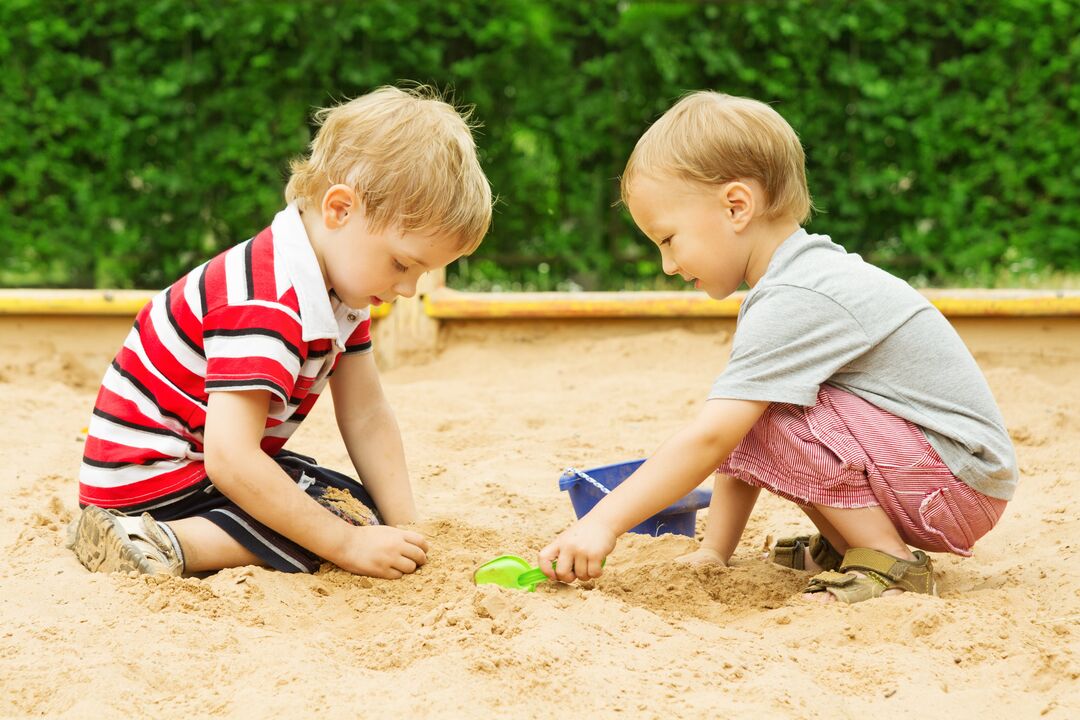
The most common places where a child can get worms are:
- playground or outdoor soil containing worms or eggs;
- contact with animals or their droppings, infected with worms.
Eating food or water contaminated with worms
It is very important to wash vegetables and fruits thoroughly before eating, as they contain worm eggs.
Raw or undercooked foods also carry a risk of worm infestation. Contaminated water is a very common source of pollution.
How to contact?
Worms are transmitted from person to person. Pinworms are often spread in this way, so the risk of infection is very high in children.
Con center apartment
Mosquitoes are often carriers of diseases.
The presence of worms in the mother
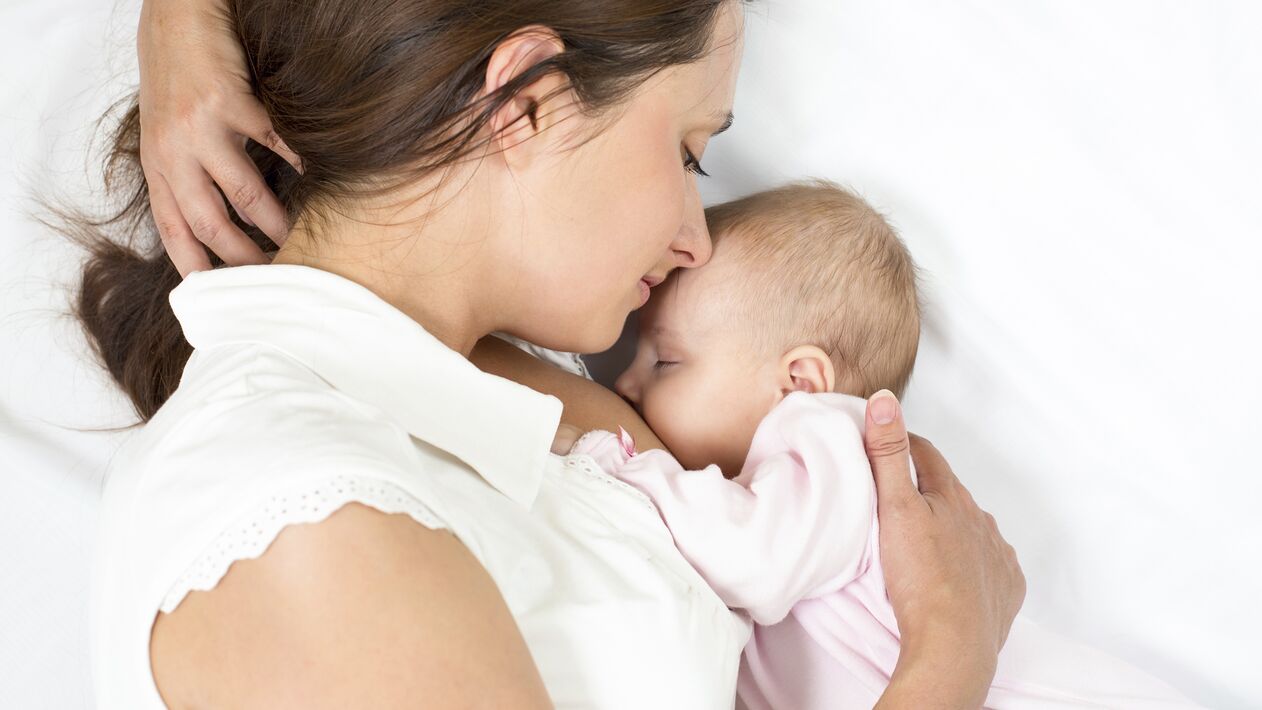
It is possible to infect the baby even during pregnancy, when the infection occurs in the womb. The larvae of helminths enter the bloodstream to the fetus through the placenta or during parturition through the birth canal. The eggs of the parasite enter the baby from the surface of nipples, toys and other objects.
Worm infections are more common in children than adults. Worms in children under one year of age are not as common as in 1. 5- to 3-year-olds, who actively explore the world, taste a variety of objects, and get infected much more often.
Helminthiases are dangerous at any age. Worm disease in a one-year-old child is a special case, because the child's body is immature, the immune system is weak, worms can cause frequent acute respiratory diseases, allergies, and diseases. of internal organs.
The presence of worms in infants is a major health problem, as worms feed on substances necessary for the full growth and development of the baby.
Symptoms of worms in children
Signs of worm infection in children depend on the environment and the activity of the worms in the child's body. The most common types of worms - infant ringworm, pinworm, tapeworm - live in the intestines, but certain parasites can move from one organ to another. For example, ringworm first enters the stomach, and from it enters the lungs or liver through the bloodstream. There, they grow for three weeks, then re-enter the intestines or stomach.
Pinworms usually reside in the anus, causing intense itching. In girls, they can be found in the genitals, causing vulvovaginitis.
The opisthorchis parasite normally lives in the liver and pancreas. Echinococcus can affect muscles and bones, chains even entering the brain. In addition, certain types of helminths are found in the respiratory organs, causing a persistent cough.
How to understand that a child has worms?
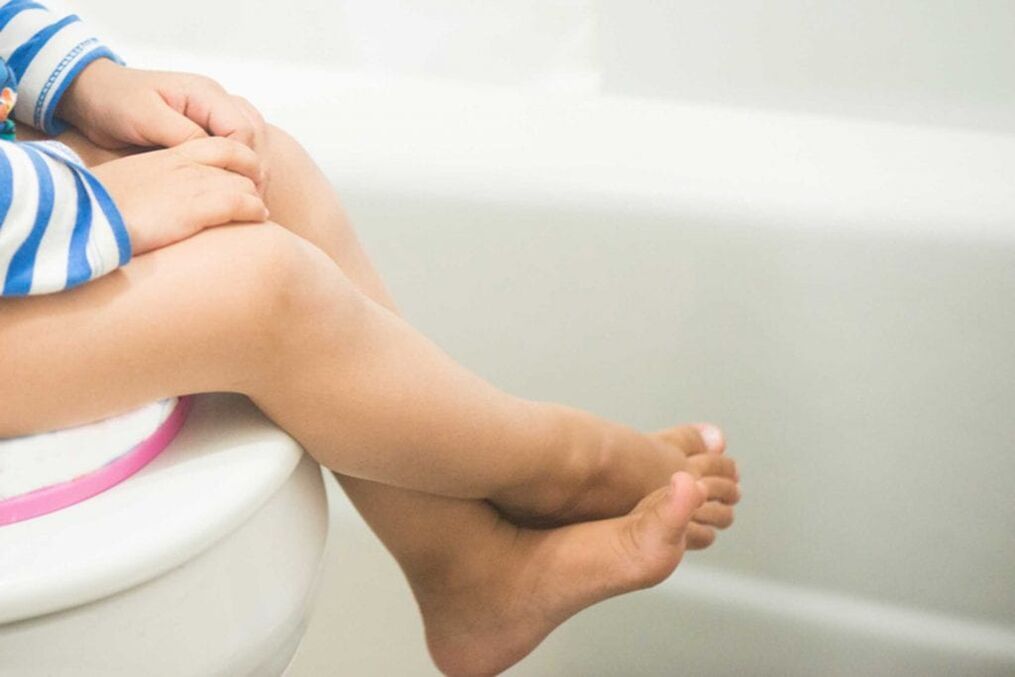
According to the location of worms in children, the following signs may appear to identify worms in children:
- Constipation.Large worms can clog the intestinal lumen, impairing fecal flow. Constipation can last for more than 2 days.
- Diarrhea.Some parasites secrete a special substance to stimulate the body to excrete undigested food particles and large amounts of water.
- Irritable bowel syndrome.Helminths can cause intestinal inflammation. This causes malabsorption of nutrients and irregular bowel movements.
- Bloating.Some helminths stimulate fermentation in the small intestine, which causes excessive gas formation. If not dewormed in time, bloating can last for months.
- Pain in joints and muscles.This happens when the parasite gets into a joint or into the thickness of muscle tissue and destroys it.
- Allergy.The waste products of worms can activate special cells in the body that are responsible for the occurrence of allergic reactions.
- Worms can cause skin diseases.Appearance of acne, urticaria, papilloma and pox. Sometimes worm infections lead to increased fragility of hair and nails.
- Anemia.Certain types of worms are able to attach to the intestinal wall and receive from them not only nutrients, but also blood. Thus, the child has anemia, which is diagnosed by clinical blood tests.
- Change in body weight.As a rule, as a result of infection with worms, body weight decreases sharply, because the worms absorb more nutrients that enter the body with food. Infection with helminths often causes loss of appetite due to toxins entering the bloodstream. But often children will experience an increase in body weight - this is a defense response to the spread of worms.
- Nervous system disorder.The child is erratic and irritable. Depression can develop in schoolchildren and adolescents on the basis of a helminthic infection.
- Sleep disorders.When a child wakes up every night, this may indicate an infectious process. At night, some worms will come out of the body through the anus, accompanied by intense itching that prevents children from sleeping.
- Jaundice.More common with tapeworm infections.
- Chronic fatigue syndrome.Children are often thin and weak, tired quickly due to lack of nutrients in the body. Memory problems develop, emotional stress and sleepiness develop.
- Immune disorder.As a result of infection with helminths, a child often develops diseases of viral origin, develops an allergic reaction to common foods. In the intestines, dysbacteriosis, colitis often develop, on the face - rash, herpes and herpes.
- Respiratory problems.They occur when the larvae of the worms attack the lungs. When infected with worms, children have a cough and body temperature rises. Bronchial asthma is an extremely dangerous complication due to the invasion of worms.
Many symptoms of worms in children significantly complicate the diagnosis. Therefore, parents should remember about routine preventive exams, including tests to determine the presence of pinworms and roundworms.
Common types of worms in children
- Pinwormcauses itching around the anus, painful urination.
- Roundworm.With ascariasis, diarrhea is observed, worms can be seen in the child's stool with the naked eye. Fever and dry cough are detected within 4 to 16 days after exposure to roundworm eggs.
- Cervical cancer.Children appear coughing, appear wheezing. In case of severe infection, anemia and chronic fatigue develop.
- Tapeworm.They enter the body with contaminated food and water. Ingested worms move out of the child's intestines, forming cysts in the body's tissues and organs.
How to identify worms in a child?
Abdominal pain, lethargy, and diarrhea can be symptoms of other illnesses. To be sure they are a sign of helminthiasis, some tests for helminths in children should be done:
1. Blood tests for worms in children.
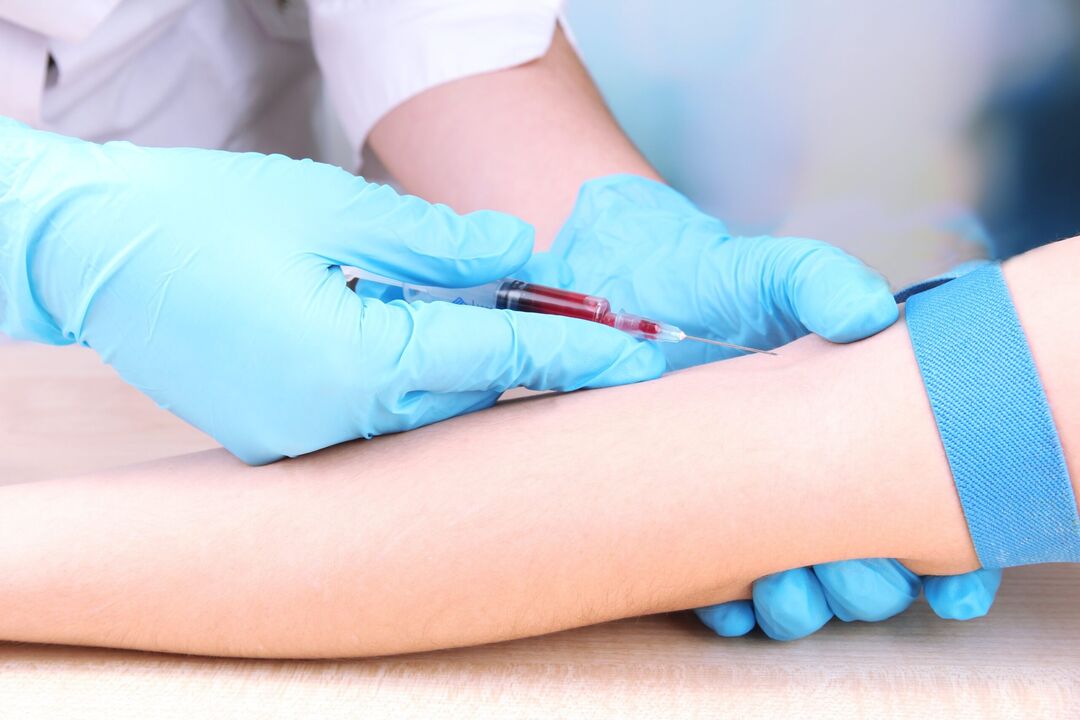
An enzyme immunoassay for worms is prescribed. As a result of the study, special antibodies and antigens are identified, which indicate the presence of worms in the body. This analysis will indicate the type of worms present, their number and fertility.
To diagnose worm disease, a general blood test is performed, which allows you to identify anemia or signs of inflammation in the body.
2. Accurate results are achieved using histological copies
It involves examining stool with a microscope. Thanks to this study, it was possible to clearly identify the body parts of the worms, their eggs. As a result, helminthiasis is diagnosed, as is the type of worm.
3. X-ray and other diagnostic measures
When there is suspicion of the presence of worms in the lungs, an X-ray examination is indicated. In addition, a sputum test is performed. Computed tomography or ultrasound is done to identify parasites in the liver, brain, or kidneys.
How to deworm children?
For effective treatment of helminths in children, contact a parasitologist and follow the doctor's recommendations.
It is unacceptable to buy dewormers for children yourself because they are quite toxic. Also keep in mind that infestations of different types of worms require separate treatments structured around the worm's life cycle. When calculating the dosage, the specialist should take into account the age and body weight of the patient.
Your doctor may prescribe dewormers in syrup form for toddlers or tablets for older children.
Dewormers for children usually kill the worms without harming the owner, in this case the child. The duration of treatment is usually short and lasts no more than a few days. Sometimes one dose is enough to remove worm debris.
But many drugs are ineffective against larvae and eggs of worms. In addition, there is a sizable threat of repeated self-infection with pinworms in young children. Therefore, after 2-3 weeks, the course of treatment should be repeated.
If the child has worms, along with the enema, the specialist may prescribe a diuretic if he suspects that the worms live in the gallbladder. Laxatives are often prescribed to quickly get rid of helminths, and sorbents to absorb toxins. Antihistamines can reduce the manifestations of allergies and improve the health of the child.
Treatment of helminthiasis in infants is difficult. Most deworming drugs are not used for children under two years old, because the drug is very toxic and has many side effects. The damage to the body from the consumption of such drugs can be significant even when the smallest dosage is exceeded. Therefore, arbitrarily treating helminths in children during the year is absolutely not allowed.
With any suspicion of worms in an infant, a specialist should be contacted, who will determine the extent of the infection and develop an effective treatment regimen in this case. In some situations, the doctor may even suggest delaying treatment for a short time to allow the child to grow up.
Don't count on over-the-counter medications as they may not be suitable for toddlers and young children. Always see your doctor and stick to the dosage and treatment regimen to keep your child free of worms. Deworming should be given to children every six months for prevention. Talk to your doctor about what medicine to give your baby to prevent worms, the specialist will determine the dose and frequency of preventive deworming.
Folk remedies for worms for children
Along with taking medicine, treating children with folk remedies will help reduce discomfort caused by worms in the body. A natural remedy for deworming won't necessarily get rid of the worms in your child, but it will help treat and prevent infection.
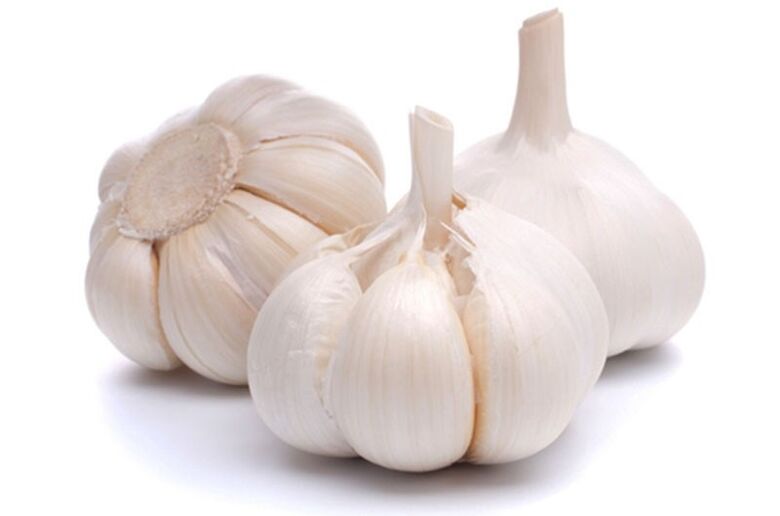
Consider folk remedies:
- Garlicis a natural dewormer for children. It is known to be effective against parasitic worms. Raw garlic contains amino acids, sulfur, which help destroy and eliminate parasites from the body. Eating three cloves of raw garlic on an empty stomach will help with complex deworming.
- Papaya- the best remedy for health. Ripe papaya has an enzyme called papain, which acts as an anthelmintic to kill worms in the intestines. In addition, papaya seeds are also used to expel worms from the stomach. Crush the papaya seeds and stir a spoonful of the mixture in warm milk or water. Ask your child to drink this drink in the morning, three days in a row. Combine one teaspoon of raw papaya and one teaspoon of honey in warm milk or water. Drinking this drink on an empty stomach helps to get rid of the worms.
- Pumpkin seedsHelps expel intestinal parasites. The seeds contain cucurbitacin, which paralyzes pests and makes it difficult for them to survive in the body. Give your child a spoonful of pumpkin seeds with honey. Boil one tablespoon of peeled and crushed pumpkin seeds in three cups of water. Leave the drink for half an hour. Give the child to drink when the liquid has cooled.
- Chinese bitter melon.Although it has a mild sour taste, it is very effective against intestinal worm diseases. Mix a cup of bitter gourd juice with water and honey and feed it to the child twice a day.
- CarrotContains vitamin A, which strengthens immunity and allows the body to fight off any intestinal worms before they completely invade the body. Eating carrots on an empty stomach will help neutralize the persistent parasites in the body and also prevent reinfection.
- turmericis a natural antiseptic and helps get rid of all types of intestinal worms. You need a glass of warm water mixed with a teaspoon of turmeric powder, give your child a dewormer once a day for five days.
- CoconutBecause of its strong antiparasitic properties, it is effective in treating worms. You can use fruit or oil to kill the worms. Give your child a spoonful of grated coconut daily for breakfast. Continue using this home remedy for a week. Coconut oil concentrate contains medium-chain triglycerides that will help eliminate worms from your baby's body. Taking four to six teaspoons of coconut oil every morning for a week will boost immunity and prevent recurrent worm infections.
- Carnationdestroy existing intestinal worms and their eggs, and prevent future infections. Add a teaspoon of cloves to a cup of hot water and leave for 20 minutes. Drink this water three times a week to avoid pollution.
- Onion juiceHelps fight roundworms. Onions are minced, and water is extracted from the onion mixture. Consume it in the morning on an empty stomach.
- Indian lilachas antiparasitic properties and can kill various intestinal worms. Combine the leaf powder in warm milk and honey. Feed your baby twice a week.
Traditional home treatments can help reduce the infection, but they cannot cure it completely. They are not a substitute for prescription drugs.
Worm prevention for children
Children who play in mud, sand, grass and other open areas are more likely to be infected with worms. Although worms can be eliminated by deworming, it is best to prevent infection as much as possible.
Hygiene is very important here. Teach your kids basic hygiene habits and educate them on how worms get into their bodies and make them sick.
Prevention of worms includes the following actions:
- Do not give raw water to children from streams or wells. This water must be filtered and boiled before use.
- After contact with the ground, hands should be washed thoroughly with soap.
- Also wash vegetables, herbs, fruits and berries that the child and other family members eat.
- It is important to thoroughly heat meat, fish and poultry.
- Do not give dry, salted, or uncooked foods to your child.
- It is necessary to shower after swimming in the water. Do not allow pets to lick a child's hands or face as their tongue may contain worm eggs.
- Hands should be washed after each contact with animals.
These precautions do not eliminate the possibility of a helminth infection, but they do reduce it.





























